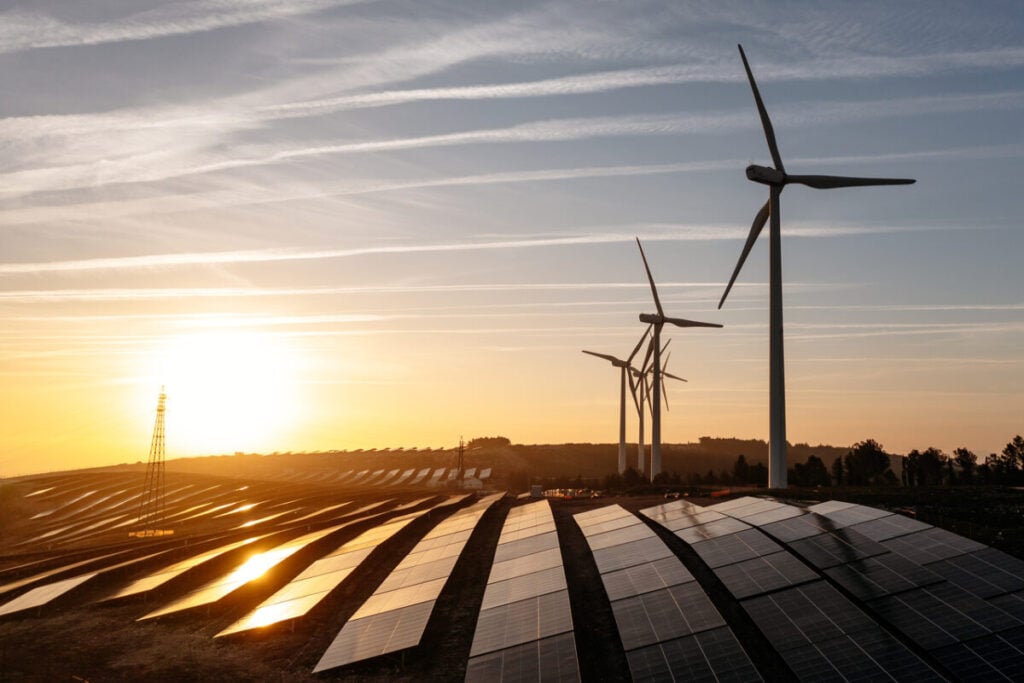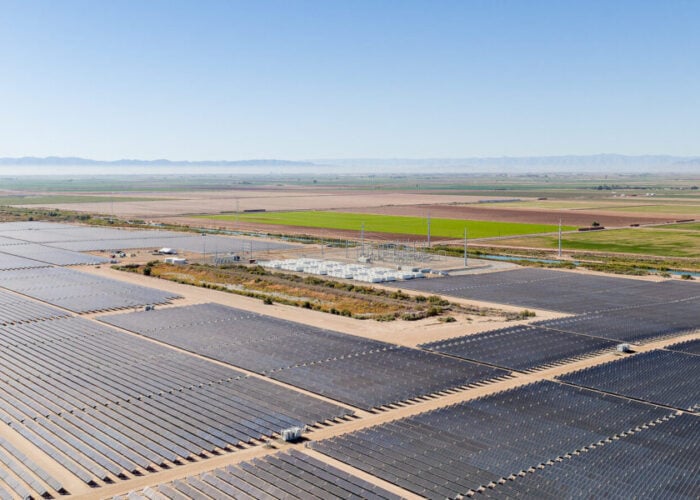
Global renewable energy deployment is falling well short of the annual levels needed to hit an international target agreed at the COP28 summit in the UAE in 2023.
A report published this week by the International Renewable Energy Agency (IRENA) and others warns that the record 582GW of renewable energy installed last year was only around half of what is needed annually to achieve the goal of 11.2TW by 2030.
Try Premium for just $1
- Full premium access for the first month at only $1
- Converts to an annual rate after 30 days unless cancelled
- Cancel anytime during the trial period
Premium Benefits
- Expert industry analysis and interviews
- Digital access to PV Tech Power journal
- Exclusive event discounts
Or get the full Premium subscription right away
Or continue reading this article for free
The report comes as negotiators gear up for the COP30 meeting in Brazil next month. Published in conjunction with the COP30 Brazilian Presidency and the Global Renewables Alliance, it tracks progress on the energy goals set at the COP28 climate summit, when a landmark agreement was reached to triple global renewable energy capacity to over 11TW by the end of the decade.
It said that although deployments reached record levels in 2024, new capacity would need to be installed at almost double that rate—1.122TW—annually between now and 2030 to reach the target. That means annual growth accelerating to 16.6% over the remainder of the decade.
The report outlined a number of key recommendations to help meet the target. These include doubling the collective ambitions framed by countries’ nationally determined contributions (NDCs) to align with the global renewables goal, and scaling investment in renewables to at least US41.4 trillion per year in 2025–2030. By comparison, 2024 saw US$624 billion invested, the report said.
It also highlighted the need for investment in other areas, such as grid modernisation and battery energy storage systems, to support the rollout of renewables.
Francesco La Camera, director-general of IRENA, said: “Renewables are not just the most cost-effective climate solution; they are the biggest economic opportunity of our time. This report shows the path: accelerate deployment, modernise grids, scale clean-tech and strengthen supply chains.
“As the custodian agency tracking progress toward the global renewables goal, we call for greater ambition. By raising targets, mobilising finance and deepening cooperation, major economies can lead the energy transition and make COP30 a milestone.”
Ben Backwell, chair of the Global Renewables Alliance, said: “Our industries, led by wind, solar and hydropower, are already delivering growth, jobs and security. What we need now are long-term government plans that match national ambitions; we need pipelines that deliver projects. Plans must deliver enabling action on grids and storage, and help maximise the benefits of the energy transition.”
The report chimes with the views of the International Energy Agency (IEA) last week, which warned that the world is not on track to reach the COP28 goal.
In its Renewables 2025 report, the IEA said that although overall renewables deployment would more than double by 2030, with solar leading the way, it would fall short of the COP28 target.






